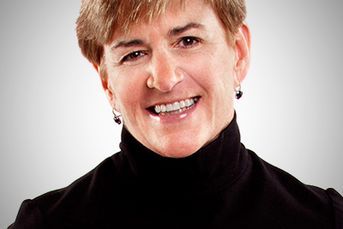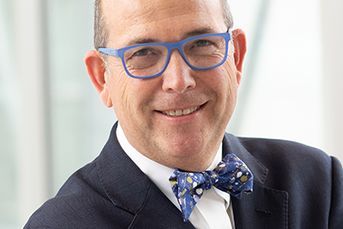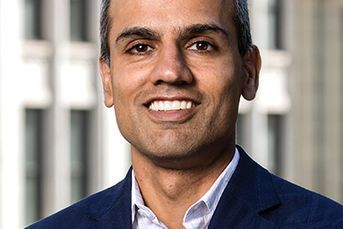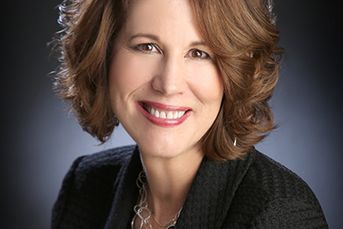Reaching out to Generation X and Y investors
With so much attention focused on baby boomers, it is easy to forget about the investment needs of the tens of millions of members of Generation X (roughly 34 to 45 years old) and Generation Y (16 to 33). It turns out that these younger investors aren't confident about investing, and more than half think that working with a financial adviser isn't worth the cost, a recent study found.
With so much attention focused on baby boomers, it is easy to forget about the investment needs of the tens of millions of members of Generation X (roughly 34 to 45 years old) and Generation Y (16 to 33).
It turns out that these younger investors aren’t confident about investing, and more than half think that working with a financial adviser isn’t worth the cost, a recent study found.
“Gen X/Y doesn’t show strong confidence as investors. They seem scared of equities, confused about government bonds, more focused on income and have increased their debt [in the wake of the recession],” according to a survey conducted for MFS Investment Management by Research Collaborative and released late last year.
“Generations X and Y have a high awareness of the stock market because of all the coverage on cable TV, and the same with real estate because of the bursting of the bubble — but they don’t have a good understanding of these areas,” said Jason Whitby, a certified financial planner and senior financial adviser with Investor Solutions Inc.
The members of Gen X have a great fear of making mistakes, especially related to their 401(k) investments, said Debbie Grose, a CFP and director of financial planning for Lighthouse Financial Planning LLC, a fee-only firm.
Many from these younger generations are “financially illiterate,” according to Paul Escobar, senior vice president of wealth and retirement at Bay Colony Partners, a 401(k) pension practice.
“The No. 1 answer we get [from younger employees] regarding 401(k) participation is: “I don’t make any money, so why should I save?’” he said.
REACHING OUT
To combat that attitude, Mr. Escobar hired a representative from the Gen Y age group to interact with client companies’ employees.
“He speaks their language. With Gen Y, it’s all about the reviews — “What do my peers think?’” Mr. Escobar said.
“He encourages people to participate in 401(k) plans and answers questions about financial planning. That way, it’s not about me coming across as somebody’s dad, saying, “You need to do this,’” Mr. Escobar said.
Focusing on her Gen X peers, Ms. Grose recently rolled out a retainer-type financial advice service called Wealth Accumulator.
Fees range from $1,000 to $2,000 for an initial setup and financial plan, with continuing fees of $100 to $125 per month. A minimum one year commitment is required.
In determining the fee structure, Lighthouse compared its pricing with “what households pay for other monthly services, such as housekeepers, gardeners or personal trainers,” Ms. Grose said.
“Clients are signing up because they appreciate the complexity of investments and financial services, and are looking for collaboration and expertise,” she said.
“Our age group typically has a lot of questions but not enough assets to work with a typical fee-only adviser. We’re so busy in this phase of life with our kids, yet there are so many important financial issues to be taken care of.”
“Gen X will pay for information, because it wasn’t free when they were starting out … [and] because they were more successful at monetizing their degrees and finding work. [They] had lower expectations starting out and many experienced setbacks during the dot-com boom,” said Rebecca Schreiber, a CFP with Solid Ground Financial Planning who specializes in working with Gen X and Y clients.
“Gen Y grew up joyriding on the information superhighway … [and] is skeptical of paying for [a financial] education since many are unemployed after borrowing their way through school,” she said.
In addition to her private practice, Ms. Schreiber conducts workshops and teleconferences for Wi$eUp, a financial education program designed for Gen X and Y women that was started in 2004 by the Labor Department. She also serves as a financial expert for the program’s online question-and-answer page.
The Q&A is also a component of AARP’s LifeTuner website, launched in October 2009 to provide financial education to 25- to 34-year-olds.
Mr. Whitby serves as one of LifeTuner’s experts for questions and answers.
“The Internet is where [Gen X and Y] turn, and LifeTuner wants to be an unbiased source of information for them,” he said.
These generations are demanding greater transparency, Mr. Whitby said, “because they can Google information or go to Yahoo Finance or Morningstar [Inc.]. They want more evidence-based information, and not necessarily the [traditional adviser-client] face-to-face relationship.”
Relationships aren’t disappearing, however, but taking on different forms.
Gen Y adviser R.J. Weiss, who recently became a CFP and is an insurance producer for Weiss Insurance Agencies Inc., is reaching 9,000 unique visitors per month on his website, GenYWealth.com. The site provides financial education, resources and personal commentary for 20-somethings.
“[Gen Y] likes to see a presence online; they like to see other people following you on Facebook and Twitter, commenting on your blogs. Consistency is the key,” Mr. Weiss said.
“They can build trust with you even if they’ve never met you.”
Learn more about reprints and licensing for this article.








